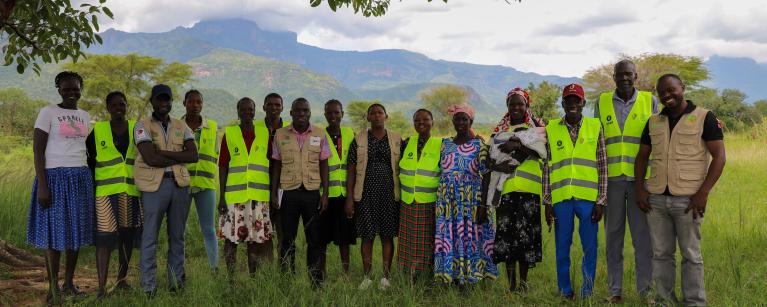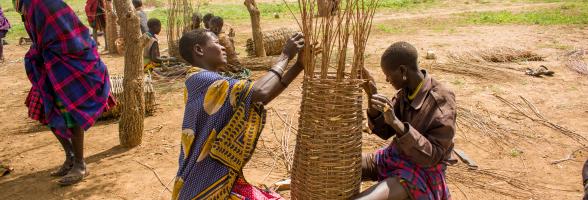In Moruita sub-county, Nakapiripirit district, a group of community human rights monitors is leading the charge to advocate for the rights of children.
The group of ten human rights community monitors was trained by Resource Rights Africa (RRA), a partner under the Irish Aid-funded Resilience Inclusiveness Sustainability and Empowerment of Communities in Karamoja (RISE-K) project.
Under the project, Oxfam, working with RRA, trained the community monitors on how to monitor human rights violations, including children’s rights in mining communities.
“We trained them in their roles, including community sensitisation, documentation and referral of cases before deploying them in the sub-county”, says Boniface Kiyonga, a project officer at RRA.
In an area where the allure of mining attracts school-going children to nearby mining sites like Utut and Acherer, the community monitors play an important role in sensitising communities on the implications of child labour, the importance of education and tracking school attendance sheets to identify school dropouts.
Isaiah Kwemoi, a community monitor, says, “We go to the mines, and whenever we find children, we sensitize their parents on the dangers of child labour and neglect and ensure that their children go back to school.”
The community monitors maintain a list of children in their area and visit schools to check on attendance. When a child is found to be missing from school, they address the issue with both the parents and the teachers.
To help keep children in school, the group of monitors has advocated for the passing of a bylaw that prohibits the hiring of child labor in mines.
“Under the bylaw, if we find a child working in any of the mines, the said mine is to be closed”, says Kwemoi. The enforcement of this bylaw has not only deterred mine owners from hiring children in mining centres but also prevented parents from sending their children to the mines
The efforts of human rights monitors have empowered community members to change traditional beliefs.
“In the past, boys were raised to care for cows while girls were expected to manage the home. However, nowadays, more parents are sending their children to school,” says Nakayima Beatrice, a community monitor in Moruita.
To ensure that girls attend school, the community monitors have also embarked on advocacy on the dangers of teenage and early marriages, which are responsible for keeping girls out of school.
Oxfam and partners, including RRA, Caritas Moroto Diocese, The Uganda National Apiculture Development Organisation (TUNADO), Center for Budget Policy and Tax Policy and the National Association of Women Organisations in Uganda (NAWOU), are implementing a multi-pronged project to create an empowered, inclusive, just, and resilient community in the Karamoja sub-region of Uganda.

